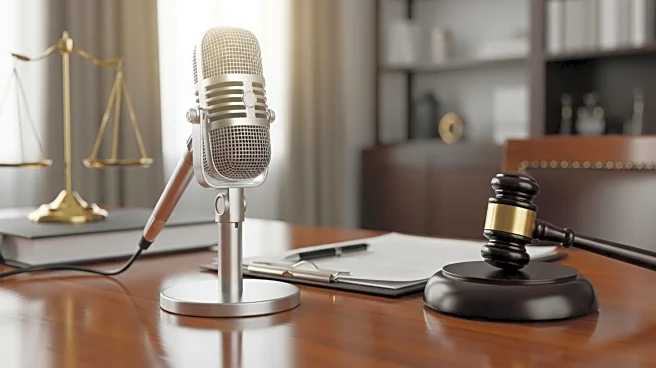What's Happening?
Haden Kirkpatrick, a former vice president at State Farm, has filed a lawsuit in Cook County Circuit Court against political activist James O’Keefe, O’Keefe Media Group LLC, and Sabrena Shabandir. The lawsuit alleges violations of Illinois’ eavesdropping statute, which prohibits recording private conversations without consent. The incident in question involves Shabandir allegedly misrepresenting her intentions to Kirkpatrick, claiming interest in dating him, but instead secretly recording their conversation. The recording captured Kirkpatrick making controversial comments about State Farm’s business practices, including rate hike strategies and disparaging remarks about California wildfire victims. Following the release of the video, State Farm terminated Kirkpatrick, stating his remarks were inaccurate and did not reflect the company’s views.
Why It's Important?
This lawsuit underscores the ongoing tension between investigative journalism and privacy rights, particularly in states like Illinois with strict eavesdropping laws. The case could set a precedent for future undercover journalism investigations, impacting how journalists conduct their work and the legal boundaries they must navigate. The outcome may influence the balance between press freedom and privacy protections, with potential implications for media organizations and individuals involved in similar activities. Legal experts are closely monitoring the case, as violators of Illinois’ eavesdropping law face significant penalties, including felony charges.
What's Next?
The Glenview Police Department has opened an investigation into the incident, with a detective questioning the undercover journalist involved. No arrests have been made, but the case may be reviewed by the state’s attorney. Both sides are preparing for a lengthy legal battle, and the court's decision could have far-reaching consequences for the practice of undercover journalism. James O’Keefe has defended the recording, arguing it was made in a location without an expectation of privacy and framing it as a First Amendment issue.
Beyond the Headlines
The case highlights broader ethical and legal questions surrounding the methods used in investigative journalism. It raises concerns about the potential invasion of privacy and the responsibilities of journalists to adhere to legal standards while pursuing stories. The legal proceedings may prompt discussions on the need for clearer guidelines and protections for both journalists and individuals involved in such investigations.









